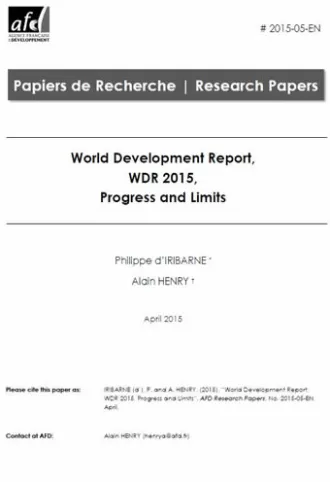Share the page
World Development Report - WDR 2015 - Progress and Limits
Published on

The innovative World Bank Report Mind, Society, and Behavior (WDR 2015) offers great prospects, focusing on the way in which human beings act according to the meaning they give to situations in which they find themselves. It does consider this way of acting as obeying forms of rationality that experts should take into account. It even includes development experts in its human behavior analyses, as they can also take as being self-evident what, in fact, is simply the result of the filters that their mental models place between them and the world in which they are taking action. In this paper we discuss that there has been unequal progress in the revolution initiated by the Report, depending on the fields it concerns. One of its strong points concerns the ways of going about changing what can be considered as bad habits. But, there are some concerns in the way the report is using the same term of mental model (or that of culture), to mention general mental models, related to broad concepts of existence, the organisation of living together - what one could call macrocultures, concerning an entire country - in contrast to microcultures which are generally at issue. We question the reasons for the contrast between the strong emphasis that the report places on what relates to experiences of the transformation of mental micromodels and a certain reluctance towards an informed and creative consideration of macromodels
Useful Information
-
Authors
-
Philippe d'IRIBARNE, Alain HENRY
-
Coordinators
-
Alain HENRY
-
Edition
-
5
-
Number of pages
-
16
-
ISSN
-
2492-2846
-
Collection
-
Research Papers
-
Other languages
